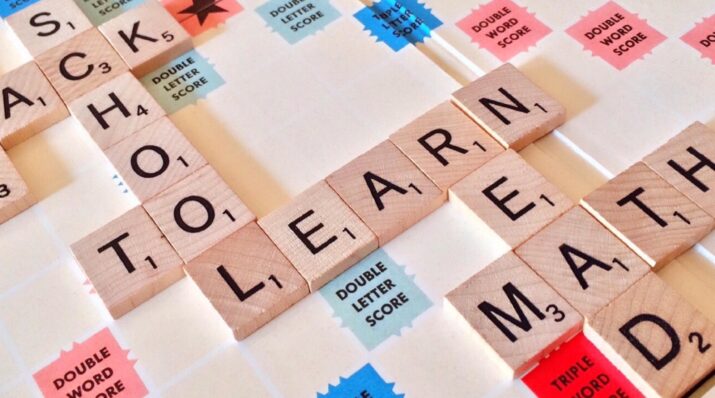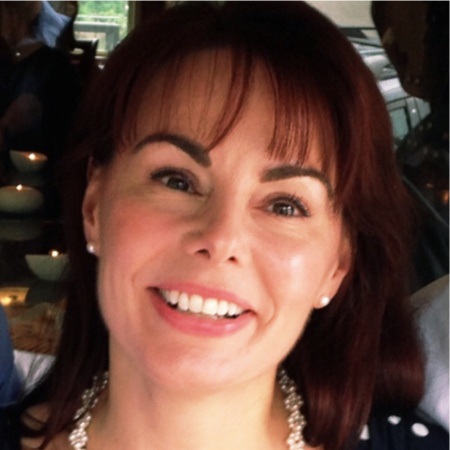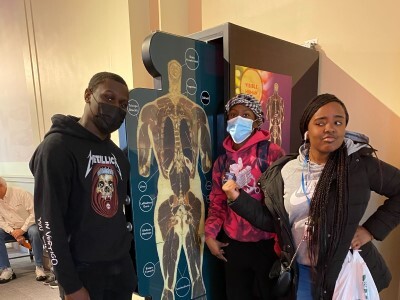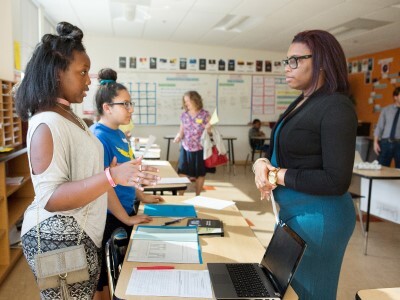Reimagining Assessment
3 Ways Student-Led Assessment Improves Learning in Virginia
Topics

Educators are rethinking the purposes, forms, and nature of assessment. Beyond testing mastery of traditional content knowledge—an essential task, but not nearly sufficient—educators are designing assessment for learning as an integral part of the learning process.
In 2016, 11 school districts across Virginia came together to with a single goal: transform assessments so that our students are more engaged in learning.
In May 2016, a group of 11 school districts across Virginia came together to build a Networked Improvement Community (NIC) with the aim of transforming assessment throughout Virginia. We have one goal: Create more student-led assessment opportunities in our schools so students are more engaged in learning and develop the Profile of a Graduate attributes the state has adopted for all of its graduates to acquire.
Through the NIC, a shared labor of love, we collaborated first to define what we mean by student-led assessment (SLA), then to “see the current assessment system,” and finally to collectively develop and refine “change ideas,” practices, and resources to improve assessment and instructional practices across all the schools. The beauty of working as a NIC is that we can honor the differences each of our divisions brings to the work while also learning from those differences. We do that by studying how aspects of our various contexts impact the change ideas we are implementing.
As a result of our ongoing collaboration, SLA is making a difference in three very interesting ways.
Student-led assessment is focused on assessment as a process, not as a product
A common misconception that we address often in our work is that SLA means students create their own tests. While students certainly CAN create test questions or help devise the ways they will show what they know, the main focus of SLA is on the process of assessment and giving students varied opportunities and more voice. We see this as an integral avenue to engaging students. Through that focus, we can then empower students to take more ownership over their assessments AND their learning. We have learned from Ron Berger and his work around student-engaged assessment; it has shaped our thinking on this topic in profound ways.
For example, students engaging in the Capstone Experience in Fairfax County Public Schools are choosing topics of interest to them, collecting evidence of their learning in portfolios that include quarterly reflections on their Portrait of a Graduate skills as well as their learning about the grade level content. Roanoke County is developing a portfolio program as a graduation requirement for its seniors. Also, in Cumberland County, students work on a senior project throughout their senior year to present as a graduation requirement and include multiple checkpoints along the way. Each of these examples really embodies what we envision when we think about student-led assessment.
Student-led assessment is ongoing
This is the beauty of SLA’s focus on process—it doesn’t necessarily stop after the “assessment” is over. Unlike a traditional testing paradigm where the student studies for the test (hopefully), takes the test, and then either passes or fails said test before moving on to the next segment of learning, SLA invites students to set goals for their learning, to monitor the progress of their learning, and then pause to reflect again at the end of the learning segment to determine the next steps in their learning and assessment. SLA is fluid; students are refining and honing their learning throughout the year as they work on long-term projects and provide evidence of mastery at various times during the year.
We see this in Henry County Public Schools where middle school students are leading their own IEP meetings as way to give them more agency and voice in their learning and assessment on a daily basis. And in Albemarle County, students are continually focusing on their learning through intentional opportunities for goal-setting and reflection on their progress toward those goals.
Student-led assessment is all about metacognition!
One of the coolest things we’ve learned about SLA is that at its core, it is really about building students’ capacity to think metacognitively. For students to be good at goal setting and self-reflection they need to think deeply about their learning and the thinking involved in that learning. We’ve discovered (like many before us) that this type of thinking is a skill that needs much scaffolding and practice.
Just last week, we visited a classroom of first graders who could articulate how they were developing as communicators. They could tell us what they need to do differently to improve their general communication skills through specific communication attributes. Through the use of technology and drawing, teachers were helping students make their thinking visible, even though their ability to capture that thinking in writing was limited. An additional bonus to that approach was pointed out by a colleague—as these students continue their learning journey, they can look back on these videos and illustrations and have a really engaging set of data to help them see their growth over time. So amazing!
All of these lessons learned about assessment also apply to our NIC work with the 11 Virginia school districts. My colleagues and I participating in the NIC are all students of assessment and, even more so, students who are constantly learning how to improve our collective assessment practices. We won’t stop learning about, and trying to improve, the assessment experiences and, ultimately, the school experiences that students have in our districts. Why? Because we are determined to ensure a more engaged and equitable assessment system throughout Virginia.
Hear from students as they share their stories with Student-Led Assessment in this Assessment for Learning Project podcast.
Photo by Today Testing via Wikimedia. CC BY-SA 4.0




